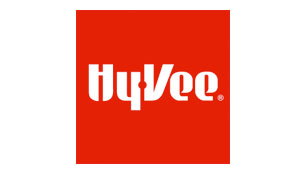A Closer Look: Cory Holland

JOE GARDYASZ Apr 10, 2018 | 5:56 pm
5 min read time
1,164 wordsAll Latest News, Banking and Finance, Business Record Insider, InsuranceCory Holland took the reins of the Dana Co. on Jan. 1, succeeding founder Dana Ramundt as president and CEO. Holland joined the West Des Moines-based independent insurance agency in 2001 and in 2010 became the minority owner. A Des Moines native, Holland began his insurance career in 1992 as an underwriter with Allied Insurance and later worked for Continental Western Group in underwriting before joining the agency. Ramundt, who founded the agency as a one-person operation in 1989, announced last year that Holland would take over leadership of the agency, which now has 25 employees and represents more than 35 insurance carriers.
Were you planning on insurance as a career while you were in college?
I really wasn’t. I knew I wanted to do something in business. I started in accounting, actually, and got an accounting degree. This isn’t a very good comment for Central College’s credentials, but I know very little about accounting to this day. So I surround myself with people who were better students in accounting than I was.
How did you come to join the agency?
I had a friend here who worked in the marketing department — back then we were only about 13 or 14 employees. She wanted to get out of small business and back to a larger company. So on her way out the door Dana jokingly told her, “You can’t leave here until you find your replacement.” She said, “Done deal — I already found a guy who wants to work here.” And so it worked out for both of us; she just retired last June from EMC and I’ve been here for 18 years. … I was able to take my insurance knowledge and go out and help producers sell.
How did the succession plan come about?
Last summer [Ramundt] said, “You know, I’m getting so much pressure to sell — If I’m going to sell it to anybody it’s going to be to you, so why don’t I just make this happen and I can put the issue to bed and tell everybody, ‘I’ve got a plan; this is what’s going to happen.’ ” It allowed him to push all the day-to-day stuff over to me. He’ll still be chairman and can come in when he wants to and go duck hunting when he wants to, knowing that the agency will go forward in the direction that he planned.
What sets this agency apart?
We do our niche real well — we do a lot of home and auto insurance. We’re still very interested in the one-on-one consultation. If you want somebody to sit across the table from you and explain the policy, that’s one thing we’re still pushing. … Outside of personal lines, the bulk of our business is working with business owners. … We let the big boys out there chase the large accounts — they can do those very well. We bring a little more to the table than the small mom-and-pop shop that may not have the resources we have. We kind of fill that middle niche; I always tell people that anyone with one to 50 employees is right in our wheelhouse. We can bring benefit to them and make them feel important. We also work with startups, and hope that they remember who was with them when they needed help out of the gate.
What challenges do midsized agencies face these days?
One is competition from the direct writers. They’ve got the advertising budgets; there’s a reason they’re on every football game and every commercial. [The challenge is] trying to figure out how to adapt their model to the independent agency. … Trying to get younger people to appreciate value, or maybe it’s us [as the agency] recognizing what’s important to a younger person might be something we struggle with. Another challenge is getting more young people into the insurance business. We’ve done well — we’ve hired two people in their early 20s to try to build our own. … Dana himself has done a lot of work with the University of Iowa [Vaughan Institute] to teach students they can stay in Iowa and make a real nice career in the insurance industry.
Is it difficult for an agency of this size to embrace new technology?
It is — it’s a mentality. That’s why we need to recruit younger people to teach us how to sell to younger people. The business owner today is still mainly of that generation that wants to sit down with a human being and explain things to them. But eventually they’re going to turn that business over to their 26- or 28-year-old when they’re ready to hand off the baton. And that is a challenge for us, figuring out how those people want to do business. Dana always had a saying: “It’s the pioneers who take the arrows.” We’ve always let others be out front to work out the kinks, and then we’ll fall in line with what works. But we also don’t want to be the last one to adopt something either. In my opinion it’s an Iowa thing that people still like doing business with their friends and neighbors. … My gut tells me that for the next 20 years, people are still going to want to do business with a human being.
Changes ahead for the company?
Dana has spent 28 years building this to what it is today, and it’s ready to take off. What I can provide is more energy and more people who want to be a part of something. He got us this far — now we’re going to take it through the next 20 years, and the next generation will take it another 20 years. We’re like any business — you have to grow to stay relevant. In the insurance business there’s a lot of conglomeration right now where people are buying other agencies, and that’s how they’re growing. We’re still trying to do it the old-fashioned way by bringing in new people and doing it internally, and we’ll continue to do that.
What does a former underwriter do for fun?
I like to be around people — I have some buddies that I play cards with; I like to golf, get together and watch some football games. In this new role now my wife and I will be doing some more traveling, so I’m looking forward to that. That will be one of the perks of this position — meeting with people higher up on the ladder and being active on boards.
What’s a book you’d recommend?
The last one I’ve probably read is by Tommy Spaulding — “The Heart-Led Leader.” It kind of hit home; believing in your employees and letting them do their thing. It’s not all about the bottom line. He talks about organizations that are successful not because they had the smartest leaders, but because they did things to put their people in a position to be successful.









